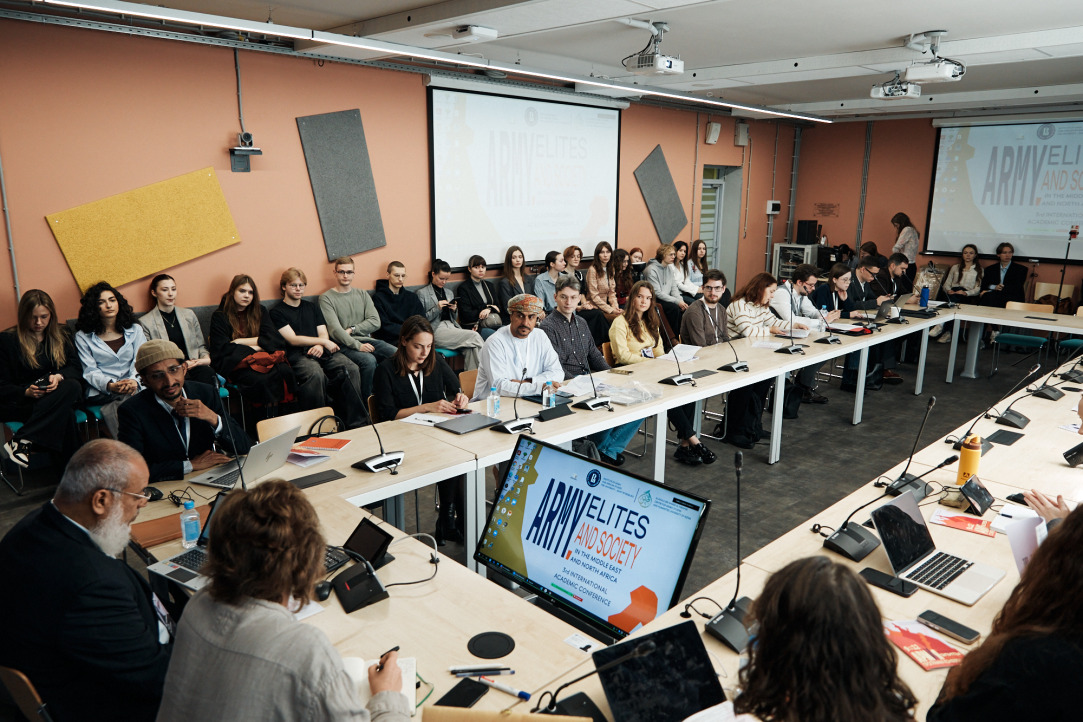
HSE University–St Petersburg Holds First International School for Early-Career Researchers in Arab Studies
HSE University–St Petersburg has held the first 'Contemporary Studies of the Sultanate of Oman: Methods, Concepts, Texts' international school for early-career researchers. The programme gathered more than 30 students and experts from Russia, Oman, Italy, and France.

Scientists Discover Why Parents May Favour One Child Over Another
An international team that included Prof. Marina Butovskaya from HSE University studied how willing parents are to care for a child depending on the child’s resemblance to them. The researchers found that similarity to the mother or father affects the level of care provided by parents and grandparents differently. Moreover, this relationship varies across Russia, Brazil, and the United States, reflecting deep cultural differences in family structures in these countries. The study's findings have been published in Social Evolution & History.

HSE University–St Petersburg Hosts International Expert Day of Social Entrepreneurship
HSE University–St Petersburg has hosted the third expert meeting devoted to social entrepreneurship. The event featured presentations of two books that explore the roles of universities and business in creating conditions for developing a socially responsible society.
.jpg)
‘National Symbols of States Are an Integral Part of Cultural Code’
In December 2025, HSE University hosted the first Forum of the BRICS Law Schools Consortium organised by the HSE Faculty of Law. The forum brought together 42 international delegates (including 10 deans) from 14 universities in Belarus, China, South Africa, India, and Indonesia. The programme included expert discussions, the signing of cooperation agreements, and the adoption of decisions on the future areas of activity of the BRICS Law Schools Consortium, which was established at the initiative of the HSE Faculty of Law.

‘Popularity and Special Interest’: How HSE University–St Petersburg Strengthens Its Positions in Southeast Asia
In November, HSE University–St Petersburg representatives participated in a series of research and educational events in Malaysia and Indonesia. Read on to find out the results of the trip and why it is especially important for HSE University–St Petersburg to develop academic ties with Southeast Asia.

Artificial Intelligence Transforms Employment in Russian Companies
Russian enterprises rank among the world’s top ten leaders in AI adoption. In 2023, nearly one-third of domestic companies reported using artificial intelligence. According to a new study by Larisa Smirnykh, Professor at the HSE Faculty of Economic Sciences, the impact of digitalisation on employment is uneven: while the introduction of AI in small and large enterprises led to a reduction in the number of employees, in medium-sized companies, on the contrary, it contributed to job growth. The article has been published in Voprosy Ekonomiki.

‘A New World Order Must Be Human-Centred’
The School of International Regional Studies at the HSE Faculty of World Economy and International Affairs (WEIA) held the International Conference ‘The World Majority and the West amid Geoeconomic and Civilisational Transformations.’ This was the seventh time the conference had taken place, bringing together researchers from 13 countries.

HSE University and SAFC Launch Cooperation on Nature and Climate Projects in Kazakhstan
The Сentre of Digital Technologies for Nature-Based Solutions at HSE University and the Kazakhstan-based company SAFC are planning joint work on the implementation of climate projects in Kazakhstan. Specialists from the HSE centre visited the site of the country’s first forest climate project and signed a cooperation agreement with SAFC.

70 Researchers from Seven Countries: HSE University–St Petersburg Hosts Conference on Middle Eastern and North African Studies
HSE University–St Petersburg held the Third International Academic Conference ‘Army, Elites, and Society in the Middle East and North Africa.’ The event brought together researchers from Russia, Oman, Belarus, Uzbekistan, and several other countries.

From Machine Learning in Investment Strategies to Climate Shocks: Highlights of the 14th Financial Economics Conference at ICEF
How are investment decisions changing under conditions of inflationary shocks and the application of machine learning methods? Can financial risks be predicted using new metrics? What is the role of banks' climate resilience, and how do geopolitical upheavals affect global value chains? These questions were at the centre of discussion at the 14th International Moscow Conference on Financial Economics held on November 28 and organised by the International College of Economics and Finance (ICEF) at HSE University.


Submission Deadline: December 20, 2025